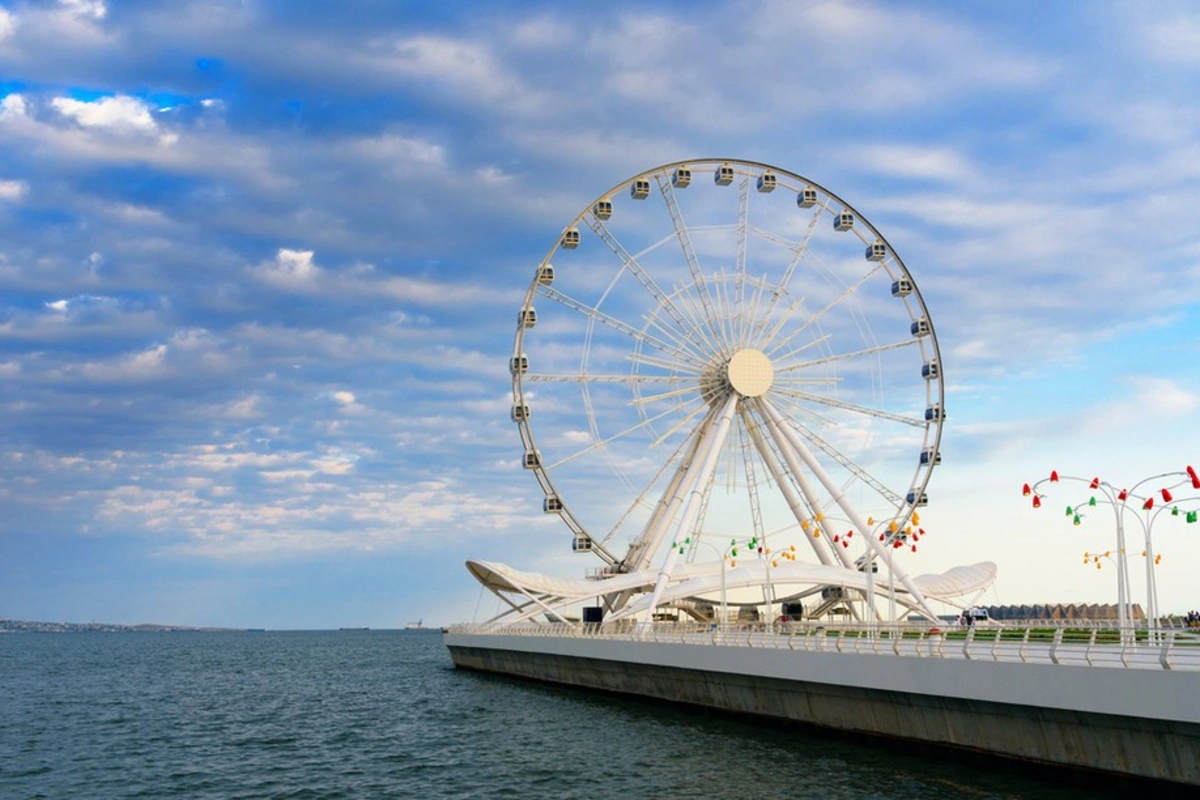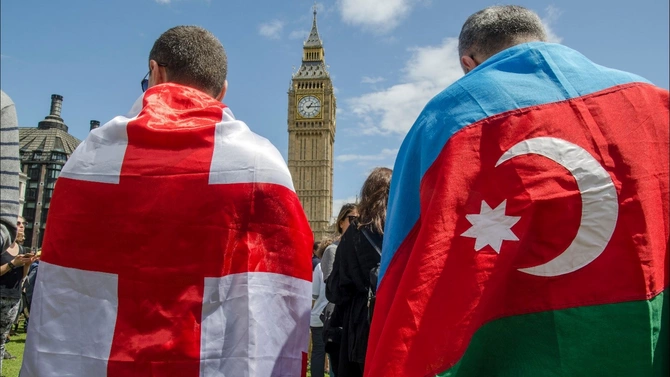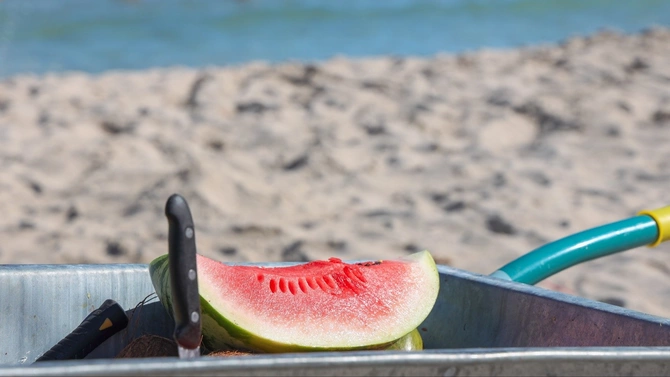
Sounds like an existential question, doesn’t it?
The "Baku Eye," a homage to the "London Eye" is a looming example of how cultures can incorporate and honor other's ideas. Photo: Elena Odareeva/Shutterstock
After so many years of blogging, I often ask myself, why am I still doing this? However, every now and then, someone will reach out and either tell me they have been enjoying my writing for a while now, that it cheered them up, or they’ll ask for some advice. Should they date that Azeri man…? Or, like this time, they might ask me to collaborate on a new project.
The blog started off as humorous observations of the culture clash experienced by one Azeri woman living in the UK. I was married to a different culture, with different traditions and a very different mentality. I often write about travel, food, parenting, or friendships. The topics may be unpredictable, but the underlying theme remains the same. It has been about emotions and feelings, which of course cannot and have not always been cheerful. In the recent escalation of the Karabakh conflict, I didn’t feel like writing anything particularly humorous. I did, however, feel like writing.
As

My husband was quite amused by my sudden wave of patriotic rage at every biased article, by my Twitter activity and post writing on Facebook.
“Look at you!” He would exclaim, incredulous, “You never as much as mentioned the word Karabakh before. Now, suddenly, you turned into a nationalist!?”

I could not explain it I could not explain it either. Something was different this time. I left Baku relatively young, but even when I was growing up in Baku, I always felt like I did not belong properly. It is a funny feeling, being a stranger in your own country. As a product of a Soviet childhood, not speaking Azeri quite properly, not wanting a traditional life for myself, I spent my younger years eager to escape. Once I left, I never felt that I had the right to identify as a proper Azeri. either. Something was different this time. I left Baku relatively young, but even when I was growing up in Baku, I always felt like I did not belong properly. It is a funny feeling, being a stranger in your own country. As a product of a Soviet childhood, not speaking Azeri quite properly, not wanting a traditional life for myself, I spent my younger years eager to escape. Once I left, I never felt that I had the right to identify as a proper Azeri.
Another thing is, I never felt that Azeris abroad were united like some other nationalities are. Take the Irish. Is there another nation that congregates and becomes instant buddies based solely on national identity when abroad?
My theory is, the people who have suffered from an outside force attacking them tend to gather together. They support each other and protect their people. The Irish do this – after their history of fighting for their freedom against the English, Jews do this –after suffering for generations from antisemitism, always looking out for each other wherever they are in the world, but Azerbaijanis had never really had to unite against anyone. It was only after years of openly biased international media coverage and through accusations and provocations on social platforms, we had to learn that we must unite, speak up, and get involved. We, Azeris worldwide, who have been living away from home for years, married or having emigrated, running our businesses, studying abroad, and even those who may have fully assimilated into another culture…in our hearts, we still belong. To our homeland, to our seashore, to our food and land. To pomegranates and watermelons.

Watermelons sold from wheelbarrows are redolent of lazy days spent picnicking on Caspian beaches – an idea captured here in the photography of Mor Shani.
It only gets stronger with age.
As I’ve gotten older, I realized that this idea that I am not a proper Azeri isn’t accurate. Maybe I am not the most typical representative of my nation, but I am still a product of that country and its rich, complicated past. I am a product of a unique, intricate blend of its different cultures, languages and history.
This is why I am here at The Caspian Post. To support this cool new project, however I am able, and with whatever skills I have. I want to build international knowledge of my region and my country, tell you stories about what it is really like, and make you want to visit. I am here to work together with other like-minded people from the region, wherever they may be in the world at the moment, to build a better future. As Tesco claims, “Every little helps.”
Share on social media